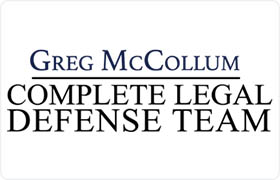 Conway RICO Act Lawyers, South Carolina
Conway RICO Act Lawyers, South Carolina
Sponsored Law Firm
-
 x
x

Click For More Info:
-
Greg McCollum Complete Legal Defense Team
1012 38th Avenue North Suite 202 Myrtle Beach, SC 29577» view mapCriminal Defence Law Complete Legal Defense Team
Our goal at the Complete Legal Defense Team is to examine the facts and circumstances completely and help our clients.
800-634-0690
Not enough matches for Conway RICO Act lawyer.
Below are all Conway Criminal lawyers.
Sponsored Lawyers
1-10 of 29 matches
Criminal
Attorney Lucas grew up in the small town of Great Falls in upstate South Carolina. Following high school, he attended Coastal Carolina University (CCU) in Conway, South Carolina and graduated in 2010 with a bachelor of arts in Political Science and a minor in pre-law. Following graduation from CCU, he accepted a position at the Medical University of South Carolina in Charleston. Shortly thereafter, he was accepted into and began the study of law at the Charleston School of Law, all in an effort to pursue his life-long dream—to practice law in South Carolina. After passing the 2014 South Carolina Bar Exam and moving back to Myrtle Beach, Attorney Lucas had the pleasure of working for several very successful law firms in Horry County. In his time with those firms, he worked cases in many areas of criminal defense, family law, and personal injury law. Specifically, he has defended countless persons accused of all types of crimes during which he tried—and won—their criminal cases; he has handled all types of cases in Family Court; he has negotiated with insurance adjusters and drafted insurance demand packets (some amounting in the millions of dollars) in many personal injury matters. In January 2017, Attorney Lucas felt that it was finally time to take his practice to the next level and opened Lucas Law, LLC right here in Myrtle Beach. If you have been charged with a crime in South Carolina or if you feel that you are being investigated for a crime; or if you have been the victim of any type of personal injury matter such as a car accident, a slip and fall, or being the victim of a crime, do not hesitate to give Lucas Law, LLC a call at 803-374-0389 and Attorney Lucas will do everything in his power to give you the representation and get you the compensation that you deserve. Additionally, feel free to click on the tab(s) at the top of the page that correspond with the service that you require. Hopefully, the content found there will give you a better understanding of what your next steps should be and how Lucas Law, LLC can assist you in resolving the matter.
(more)Divorce & Family Law, Criminal, Traffic, Business, Immigration
If you have been injured or are disabled, give me a call. If you need legal advice before you sign a contract, enter into a lease, or sign a business deal, give me a call. If you are being sued by someone and need to know how to respond to the lawsuit, give me a call. If you have been arrested or charged with a traffic violation, give me a call. Not sure if you need a lawyer? Give me a call. David was admitted to the South Carolina Bar in 1987. He currently practices law from his office in Surfside Beach, South Carolina.
(more)Accident & Injury, Lawsuit & Dispute, Criminal
Mark Nappier has been practicing in the field of civil litigation since 1991. He is licensed to practice law in South Carolina and North Carolina and has concentrated his practice in the area of personal injury, to include automobile accidents, motorcycle accidents, and wrongful death. In addition to his personal injury work, Mr. Nappier also does significant trial work in the areas of contract law, real estate litigation, and collections. Mr. Nappier also represents numerous Homeowners Associations in South and North Carolina. In addition to his litigation practice, Mr. Nappier is also licensed by the South Carolina Supreme Court as a Mediator.
(more)Accident & Injury, Criminal, Divorce & Family Law, Real Estate
Formerly of West Virginia, graduated with BA Degree from Marshall University in 1982 and Capital University Law School in 1985. He was admitted to both the South Carolina Bar and United States District Court in 1986. He has practiced law in the Horry County Area since 1986. Randy is a member of the Horry County Bar Association, South Carolina Bar Association, and the South Carolina Association of Criminal Defense Lawyers. He is certified as an arbitrator, as well as a certified Family/Divorce Mediator and Certified Guardian Ad Litem with the South Carolina Council for Conflict Resolutions. He is also certified to serve as counsel on death penalty cases. He is licensed in Federal District Court for South Carolina and the Fourth Circuit of Appeals. He is active in the local community with the Coast of Carolina Parrothead Club.
(more)


 Greg McCollum Myrtle Beach, SC
Greg McCollum Myrtle Beach, SC AboutGreg McCollum Complete Legal Defense Team
AboutGreg McCollum Complete Legal Defense Team Practice AreasExpertise
Practice AreasExpertise




